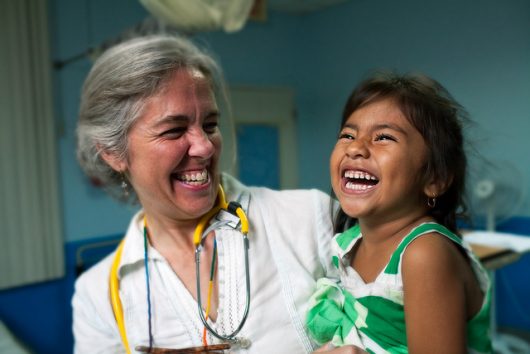Top 10 Facts About Human Rights in Belize

Belize is a small Central American country on the coast of the Caribbean with a per capita income of $4,806.50. Although it is considered an upper-middle income country, 41 percent of the population in Belize live below the national poverty line. Poverty in Belize makes many groups vulnerable to crimes and human rights violations such as human and drug trafficking and violence from gang involvement. However, the government is making an effort to address these issues and make human rights a larger priority. Below are the top ten facts about human rights in Belize.
10 Facts About Human Rights in Belize
- Previously identified as having violated human rights by The United States Department of State Human Rights Report, Belize has since addressed many issues, specifically in race relations. In The USDS Human Rights Report for 2016, employers in Belize were reported to have, “generally treated indigenous persons equally with other ethnic groups for employment and other purposes” despite the fact there are still some basic areas that still need to be improved in general workers rights.
- The recently-released 2017 USDS Human Rights Report does not report any major crimes against human rights, but there have certainly been unlawful activities, especially among government officials. The report notes that the “allegations of unlawful killings by security officers” and government officials being involved in human trafficking and child labor scandals.
- Although actions have been taken against officials who have been accused of committing human rights violations, few prosecutions have succeeded. While a small number of lower-ranking officials have faced appropriate punishment, even fewer higher-ranking officials have seen repercussions for abuses committed.
- The most common complaint reported is police abuse. There have been 59 formal complaints of police brutality recorded as of October 2017. Only 44 of the 59 offenders have been placed on interdiction or suspension. Security forces have been accused of brutality and corruption, but the government fails to properly penalize the offenders.
- There has been an increase in complaints against The Immigration and Nationality Department. Investigations into these complaints and cases of corruption continue to uncover suspicious activities of high-ranking officials and other authorities; although, no prosecutions have been made.
- Prison and detention center conditions received no complaints this time around. There are also no reports on abuse of power. The prison allows visits made by independent human rights observers and, although the prison system seems transparent enough, the process of arrest, detention and trial suffers from delays due to a backlog of cases.
- The Santa Clara Law’s International Human Rights Clinic submitted a brief in June on behalf of a community near the Macal River suffering from the large development project of the Chalillo Dam constructed in 2005. The information brings to light the human rights obligations of relevant authorities to protect its citizens as well as the legal issues the company could face regarding environmental damage. The clinic aims to support petitioner affected by these actions as well as get the Commission to write clear language on obligations regarding economic, social, cultural, and environmental rights.
- Because Belize possesses a low rate on the U.S. State Department’s 2017 Human Trafficking Report, the U.S. banned the issuing of temporary work visas to Belize in January 2018. A few agencies have been assisting Belize to eradicate the issue. For instance, the U.S Embassy in Belize provides training on Forensic Interviewing Techniques for Victims of Human Trafficking to Belize government officials.
- Belize has been included in different organizations considering the state of human rights all around the world. The Organization of American States celebrated its 70th anniversary this year, inviting the ECADE, The Eastern Caribbean Alliance for Diversity and Equality, to help develop the language of human rights, especially in the LGBTQ communities.
- Labor markets no longer suffer from outright forced labor but from subtler violations of acceptable conditions of work. A nongovernmental organization reported instances of different employers who violated wage agreements and purposefully misclassified employees to avoid paying benefits.
The fight for human rights is essential to nurturing the conditions for a world free of poverty, as these top ten facts about human rights in Belize indicate. As Belize continues to progress in developing its language, attitudes and policies regarding human rights, its citizen should begin to see a safer and higher quality of life.
– Alice Lieu
Photo: Flickr
